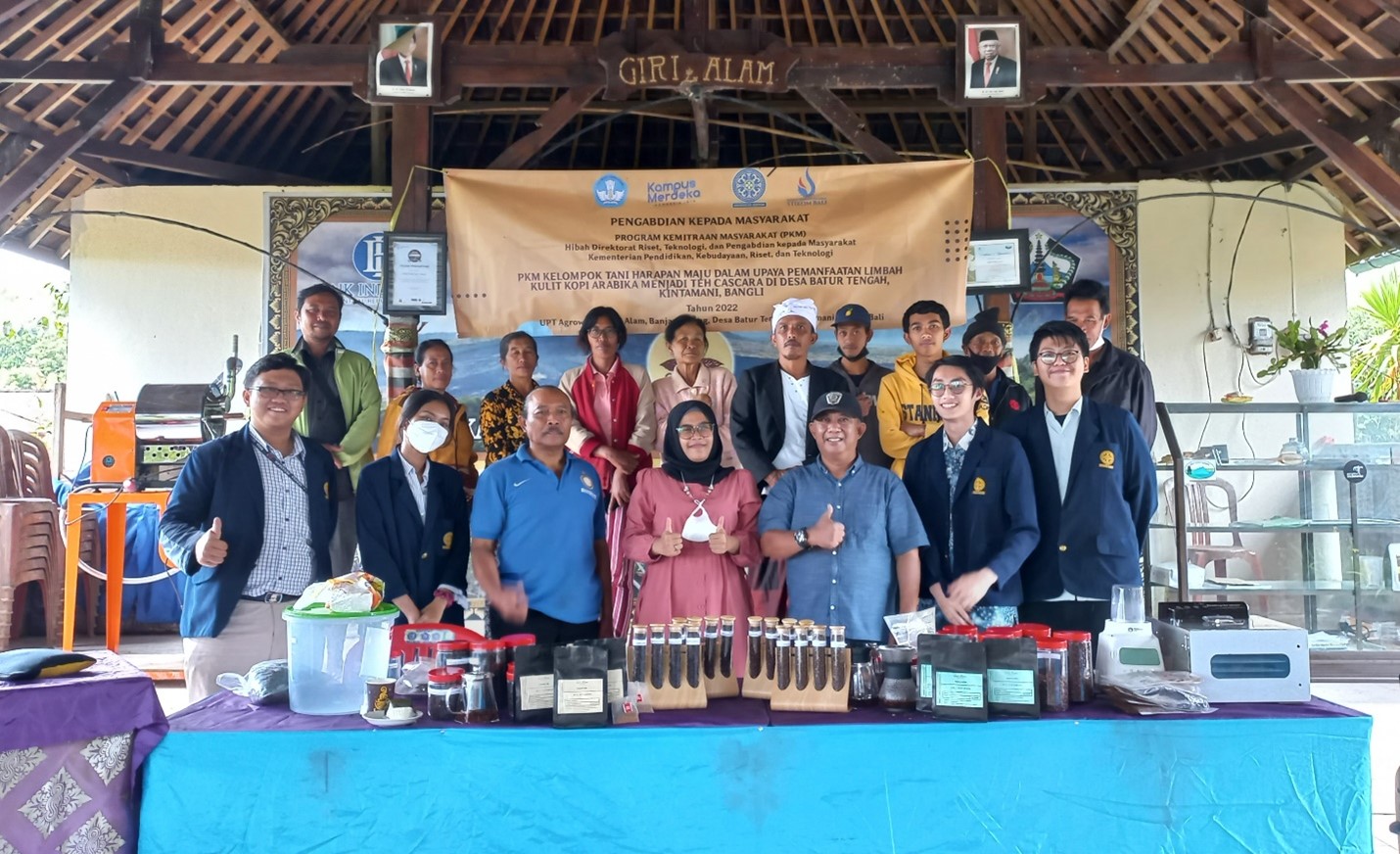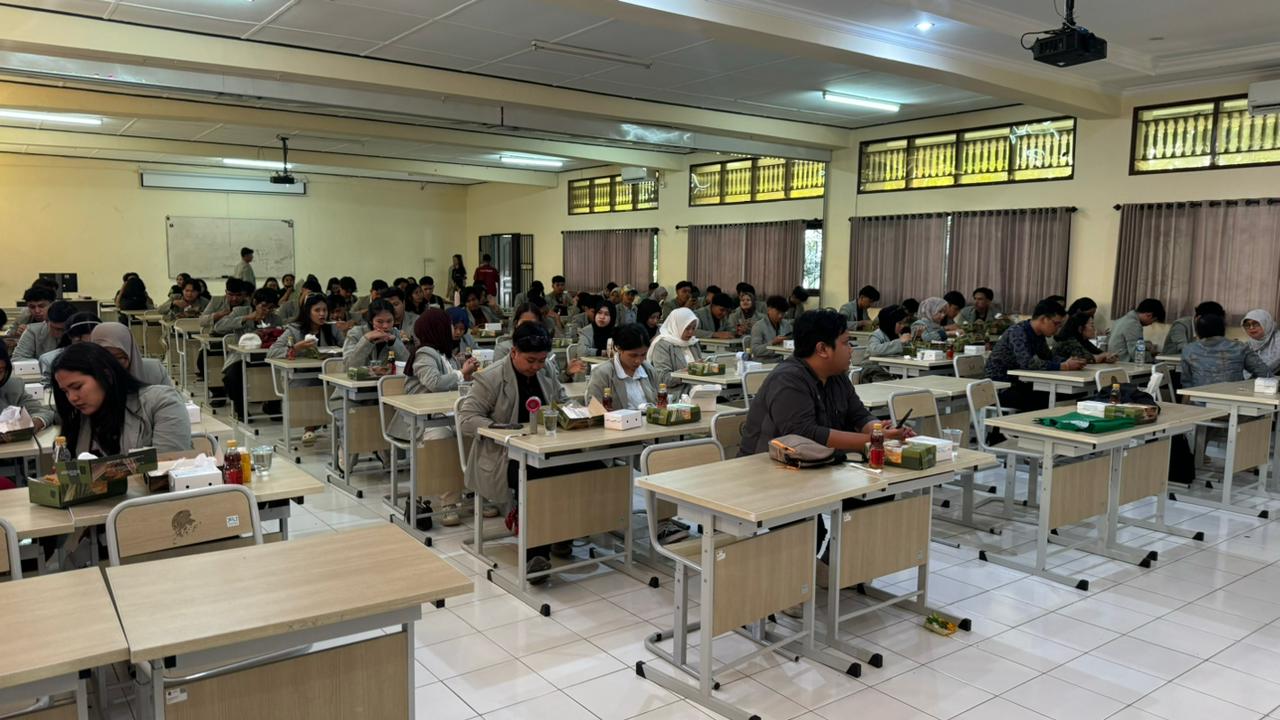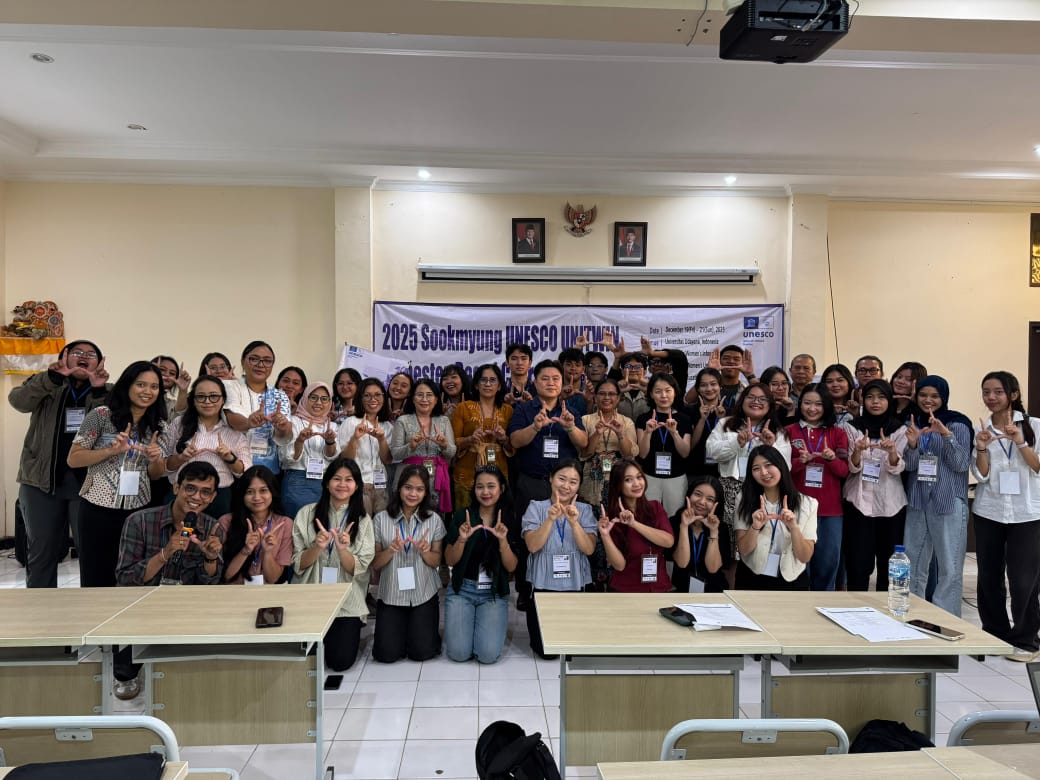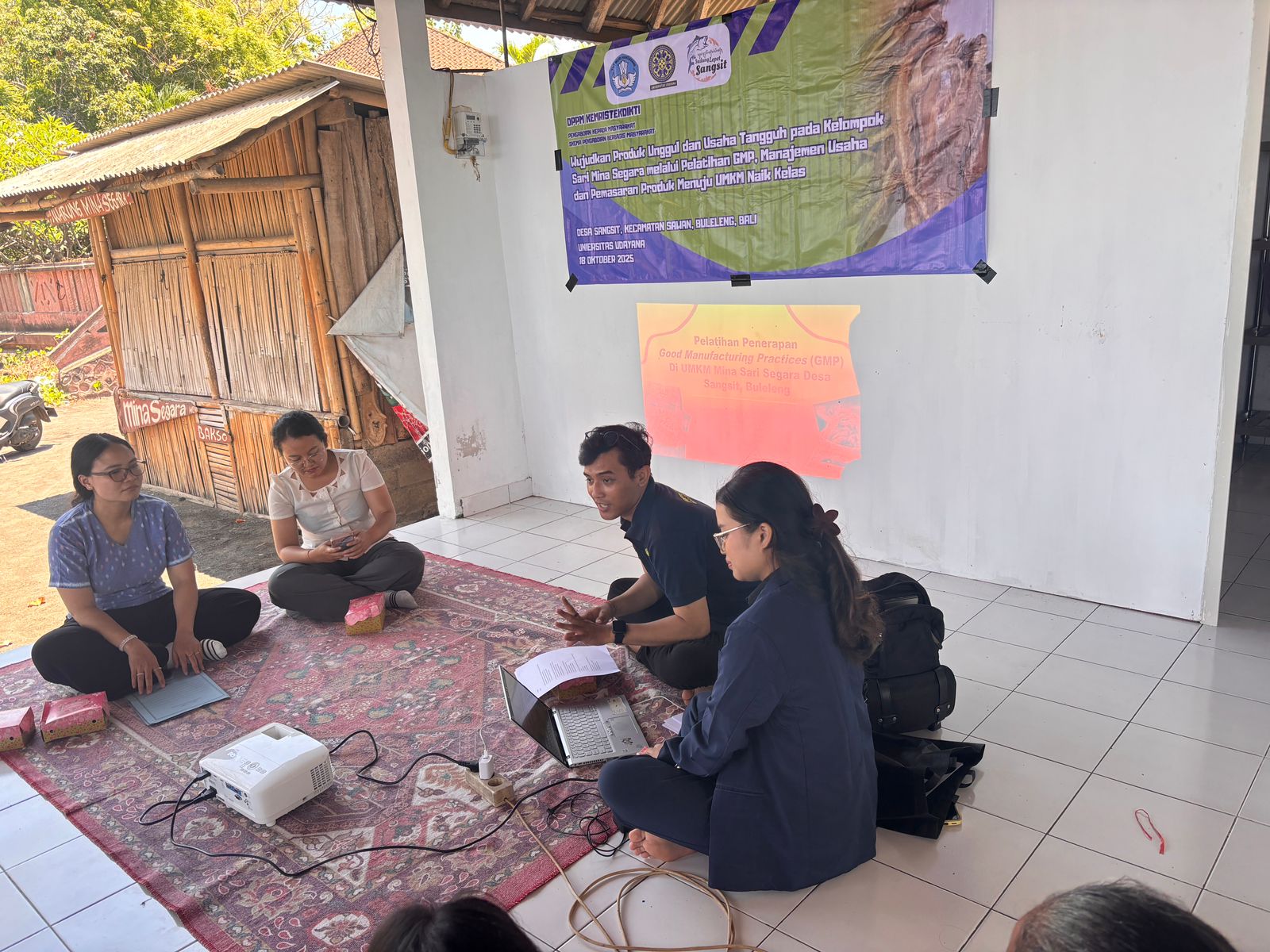Supporting the Rise of Agrotourism in Kintamani, Lecturer of Food Technology Study Program, FTP Unud, Processing Arabica Coffee Skin Waste into Cascara Tea which is Rich in Antioxidants and with Economic Value
Lecturer of the Food Technology Study
Program, Faculty of Agricultural Technology, Udayana University (FTP Unud) Sayi
Hatiningsih, S.TP., M.Sc., collaborated and joined the team with Prof. Dr. Ir.
Bambang Admadi H., M.P., from the Agroindustrial Technology Study Program, FTP
Unud, I Komang Budi Mas Aryawan, S.Pd., M.Pd., from the Faculty of Informatics
and Computers, ITB STIKOM Bali and Putu Devi Yustisia Utami, S.H., M.Kn., from
the Faculty of Law, Udayana University, together with students from the Food
Technology Study Program, FTP Unud, namely Muhammad Eriansyah Al Hakim, Aulia
Rahayu Ramadhani, Nicholas Wilbert, and Gilbert Febian are ready to support the
rise of agro-tourism in Kintamani, Bangli.
Through the Directorate of Research,
Technology, and Community Service Grant program (DRTPM) of the Ministry of
Education, Culture, Research, and Technology, Community Service has been
carried out by selecting the Giri Alam Agrotourism UPT managed by the Harapan
Maju Farmers Group which is an MSME as an activity partner. This activity was
carried out on Wednesday, October 5, 2022 in Banjar Petung, Batur Tengah
Village, Kintamani District, Bangli Regency, Bali.
As is known, Arabica coffee commodities in
Bangli Regency, Bali Province in 2020 reached 2,249 tons (Bali Province
Agriculture and Food Security Agency, 2022). The amount of coffee plantation
yields has an impact on the amount of coffee husk waste produced, which reaches
45% or around 1,012 tons in 2020. So far, only a small portion of coffee husk
waste is used as animal feed, fertilizer and sometimes just piled up/directly
disposed of, or has not been handled much, causing contamination and
environmental problems around coffee plantations. Through a touch of Food
Technology, the economic value of this coffee skin waste can be increased by
processing it into cascara tea which is rich in antioxidants. Activities that
have been carried out are training on processing, packaging, attractive
labeling, and storage of cascara tea products. Furthermore, periodic assistance
is carried out regarding the use of the website and Instagram social media as a
product marketing medium (digital marketing), including managing business
permits.
The coaches and heads of the Harapan Maju
Farmers Group, namely Mr. Ketut Putra Wijaya and Mr. Wayan Sudarma, said that
this program was needed by farmers to produce quality coffee and cascara tea
products. The existence of this program can also help increase the economic
value of coffee husks, which have been a waste and have not been used
optimally. It is the hope of Mr. Ketut Putra Wijaya and Mr. Wayan Sudarma, that
this program can be sustainable so that farmers can continue to be accompanied
and UPT Agrowisata Giri Alam can rise and be reborn after the Covid-19
Pandemic.










UDAYANA UNIVERSITY